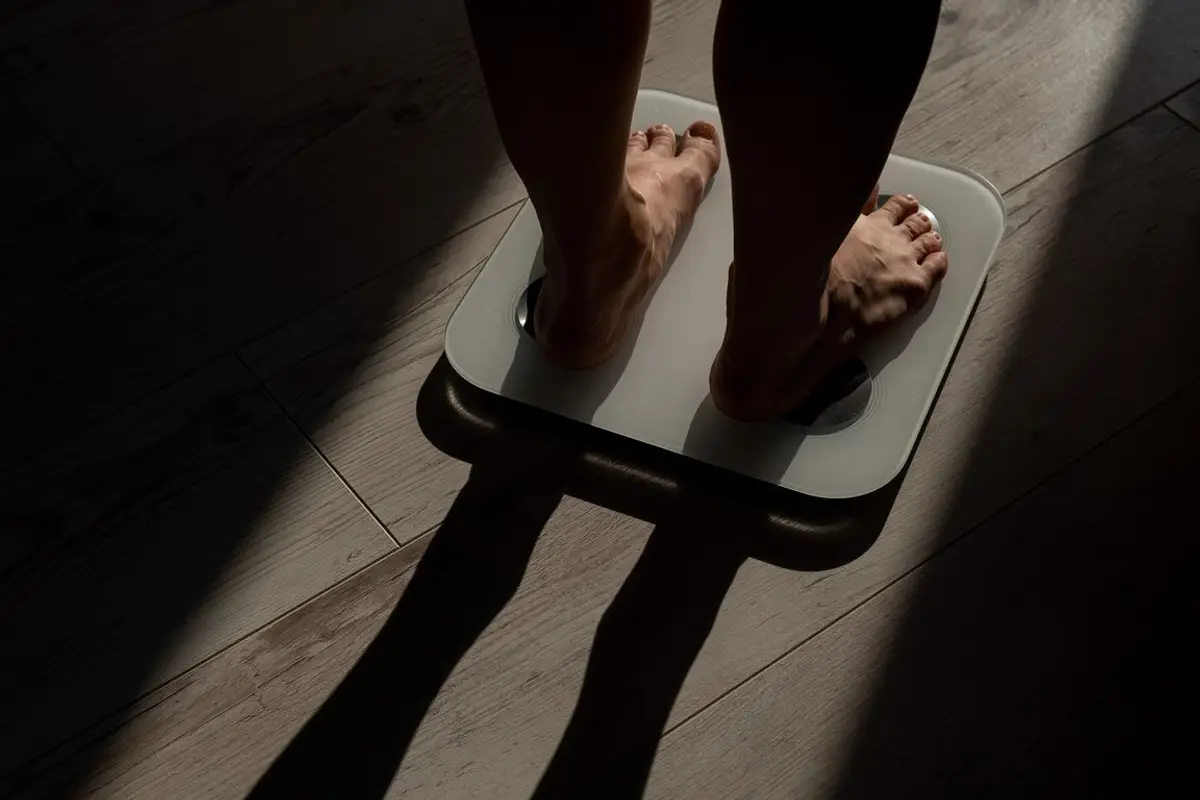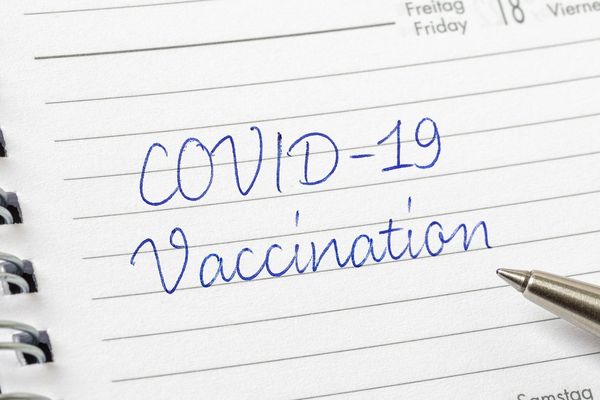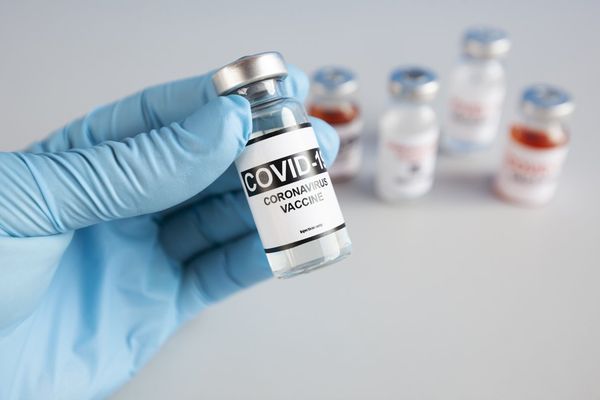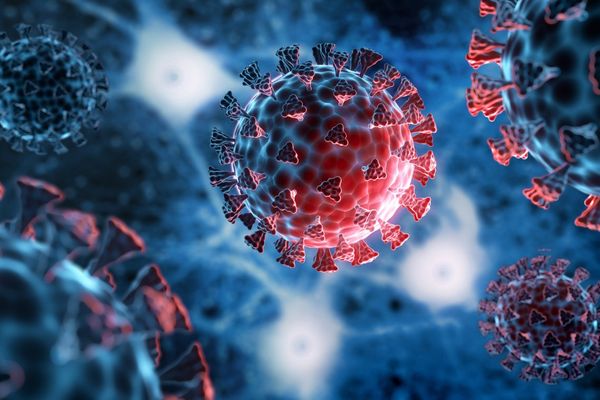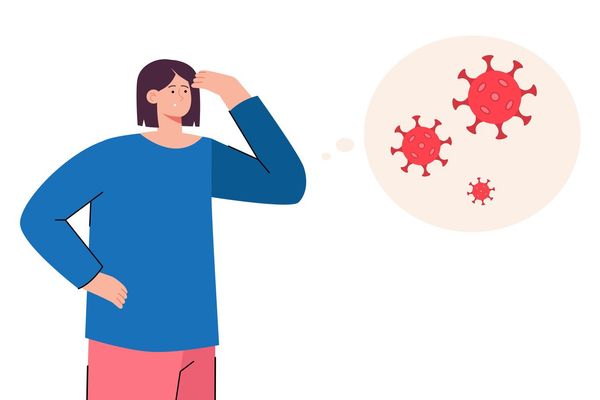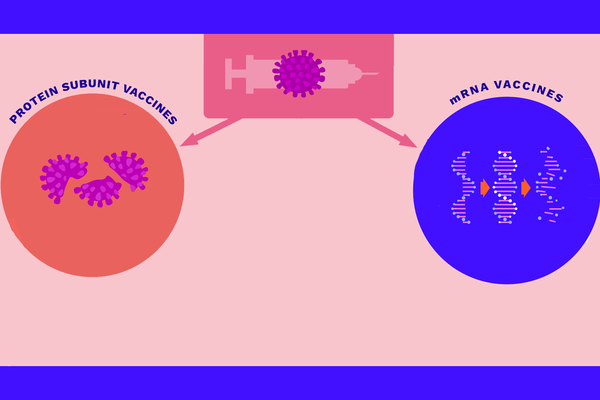Anne Dixon, a lung specialist in Vermont, vividly remembers the early days of the Covid-19 pandemic, recalling a particularly upsetting patient death.
“We had someone who was very young, had obesity and died from Covid. It was quite devastating,” said Dixon, professor of medicine at the University of Vermont Medical Center.
It was a wake-up call that the pandemic was going to be worse for people living with obesity, and studies have since shown that obesity is associated with a higher risk of severe Covid. Severe Covid means cases that require hospitalization, ICU admission and the use of a ventilator. People living with obesity also have a higher risk of Covid-related death.
“Even here in Vermont, which is a relatively lean state compared to many others, we saw people with obesity coming in and dying in our ICU,” said Dixon, who researches the effect of obesity on lung health. “We analyzed our data and found that people admitted to our ICU were much more likely to [have obesity] than people who got admitted just to the regular medical floor.”
The Covid pandemic has killed more than 1.1 million people in the U.S. since 2020, and while the public health emergency declaration has ended, Covid continues to be dangerous for many people, including those who are living with obesity.
Watch: Ask the Expert: Covid-19 and Obesity >>
What is obesity?
Obesity is a disease where an excessive amount of body fat results in a body mass index (BMI) of 30 or above. In contrast, people in a “healthy weight range” generally have a BMI of 18.5 to 24.9.
In 1990, about 1 out of 10 U.S. adults had obesity. Today, 4 out of 10 adults are living with obesity. One study estimates that by 2030, half of all American adults will have obesity.
“It’s your mom, it’s your sister, your brother, your daughter — the prevalence is so high in our country,” said Loretta Lee, Ph.D., R.N., co-chair of the Nurse’s Obesity Network and associate professor of family, community and health systems at the University of Alabama at Birmingham School of Nursing.
How obesity puts people at risk for severe illness from Covid
Obesity can have a negative effect on almost every system in your body, from your cardiovascular (heart) and endocrine system (hormones) to your mental health.
“If a person is diagnosed with obesity, pretty much every chronic condition that they have is going to probably worsen … because obesity is linked to an impaired immune function,” Lee said. “That’s why people with obesity have poorer outcomes from Covid as compared to individuals who are not living with obesity.”
People living with obesity are more likely to have other diseases — such as heart disease, lung disease and diabetes — that are each risk factors for severe Covid complications. Additionally, people with obesity are more likely to have lower lung capacity, putting them at risk for respiratory illnesses and for more severe illness. For example, people with obesity are hospitalized for asthma-related complications at 5 times the rate of people without obesity.
“If your lungs are already a little bit compromised and then your immune system is not working as well, the combined effects can be absolutely disastrous,” Dixon said.
Covid attacks the lining of the lungs. While most people have mild Covid symptoms, people with obesity often have a more serious response to the virus, leading to serious outcomes such as organ damage, mental and physical impairments and long Covid caused by inflammation over time, Lee said.
A recent study out of Stanford University found that SARS-CoV-2, the virus that causes Covid, attacks fat tissue. The virus then makes copies of itself in fat cells and causes additional infections in other cells. Fat tissue contains macrophages, immune cells that alert the body to threats and attack them. When these immune cells become infected with the virus, they become inflamed and cause other nearby cells to become inflamed.
One of the authors of the study, Catherine Blish, M.D., Ph.D., professor of infectious diseases at Stanford University, explained that the macrophages let out proteins that tell other cells there is a threat. Those cells then attract other inflammatory cells.
Why is this a problem for people with obesity? One theory is that people with obesity have more fat tissue and therefore are more susceptible to this spread of Covid-induced inflammation — though that has not been proven. But, Blish said we do know that the fat tissue in people with obesity already has extra inflammation to begin with, so the inflammatory response to the virus could be more serious than in people who don’t have obesity.
“Fat tissue also coats many of our vital organs, like our hearts all around our gut. Having inflamed fat right next to your heart is not really an ideal situation,” Blish said.
How to protect yourself from Covid if you’re living with obesity
Covid is still a real threat for people with obesity. Wearing a mask when you’re out in public can reduce your chances of catching the virus.
But, by far, the best way to protect yourself is the vaccine. Getting vaccinated can greatly lower your chances of getting severe Covid, being hospitalized or dying from Covid.
“I would certainly recommend people with obesity get vaccinated against Covid. That is our best defense,” said Dixon.
If you’re immunocompromised, you may want to consider additional doses of the vaccine for more protection. You should also be sure to act quickly if you get symptoms of Covid and/or test positive. Call your healthcare provider immediately and ask them if you’re a good candidate for treatment.
Also, be sure to stay up to date on the CDC’s latest Covid vaccine guidelines and talk to your healthcare provider about your personal situation.
“In addition to getting the vaccine, try to build a healthy lifestyle,” Lee advised. This includes adding more fresh vegetables to your diet, cutting down on processed foods and making exercise a part of your daily routine. While lifestyle might not be the cause of obesity or a quick fix, healthier choices — along with the vaccine — can help you avoid the worst Covid outcomes.
If you’re living with obesity and think you have Covid, contact your healthcare provider right away.
This resource was created with support from Pfizer.
- COVID-19 Reveals How Obesity Harms the Body in Real Time, Not Just Over a Lifetime ›
- Navigating Obesity and Stress Two Years Into the Covid-19 Pandemic ›
- Ask the Expert: Covid-19 and Obesity ›
- The Intersection of Long Covid and Obesity ›
- Obesity, Racism and Covid: A Deadly Combination - HealthyWomen ›
- Obesity, Racism and Covid: A Deadly Combination - HealthyWomen ›
- Covid and Obesity: How to Reduce Risk Factors - HealthyWomen ›
- La obesidad y el covid-19: Cómo reducir los factores de riesgo - HealthyWomen ›
- Ask the Expert: Lung Cancer in Women - HealthyWomen ›
- Am I at High Risk for Severe Illness from Covid-19? - HealthyWomen ›
- Is Covid Still a Thing? - HealthyWomen ›

